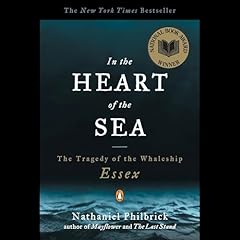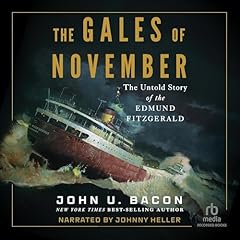
The Year Without Summer
1816 and the Volcano That Darkened the World and Changed History
No se pudo agregar al carrito
Add to Cart failed.
Error al Agregar a Lista de Deseos.
Error al eliminar de la lista de deseos.
Error al añadir a tu biblioteca
Error al seguir el podcast
Error al dejar de seguir el podcast
 Exclusivo para miembros Prime: ¿Nuevo en Audible? Obtén 2 audiolibros gratis con tu prueba.
Exclusivo para miembros Prime: ¿Nuevo en Audible? Obtén 2 audiolibros gratis con tu prueba.Compra ahora por $21.00
-
Narrado por:
-
David Colacci
1816 was a remarkable year - mostly for the fact that there was no summer. As a result of a volcanic eruption at Mount Tambora in Indonesia, weather patterns were disrupted worldwide for months, allowing for excessive rain, frost, and snowfall through much of the Northeastern US and Europe in the summer of 1816.
In the US, the extraordinary weather produced food shortages, religious revivals, and extensive migration from New England to the Midwest. In Europe, the cold and wet summer led to famine, food riots, the transformation of stable communities into wandering beggars, and one of the worst typhus epidemics in history. 1816 was the year Frankenstein was written. It was also the year Turner painted his fiery sunsets. All of these things are linked to global climate change - something we are quite aware of now, but that was utterly mysterious to people in the 19th century, who concocted all sorts of reasons for such an ungenial season.
Making use of a wealth of source material and employing a compelling narrative approach featuring peasants and royalty, politicians, writers, and scientists, The Year Without Summer by William K. Klingaman and Nicholas P. Klingaman examines not only the climate change engendered by the volcano, but also its effects on politics, the economy, the arts, and social structures.
©2013 William K. Klingaman and nicholas P. Klingaman (P)2019 TantorLos oyentes también disfrutaron:




















Las personas que vieron esto también vieron:













19th century slow apocalypse
Se ha producido un error. Vuelve a intentarlo dentro de unos minutos.
A decidedly western view
Se ha producido un error. Vuelve a intentarlo dentro de unos minutos.
A Terrific Blending of Anthropological and Earth Histories
Se ha producido un error. Vuelve a intentarlo dentro de unos minutos.
Good history lesson.
Se ha producido un error. Vuelve a intentarlo dentro de unos minutos.
Mind blown!
Se ha producido un error. Vuelve a intentarlo dentro de unos minutos.


